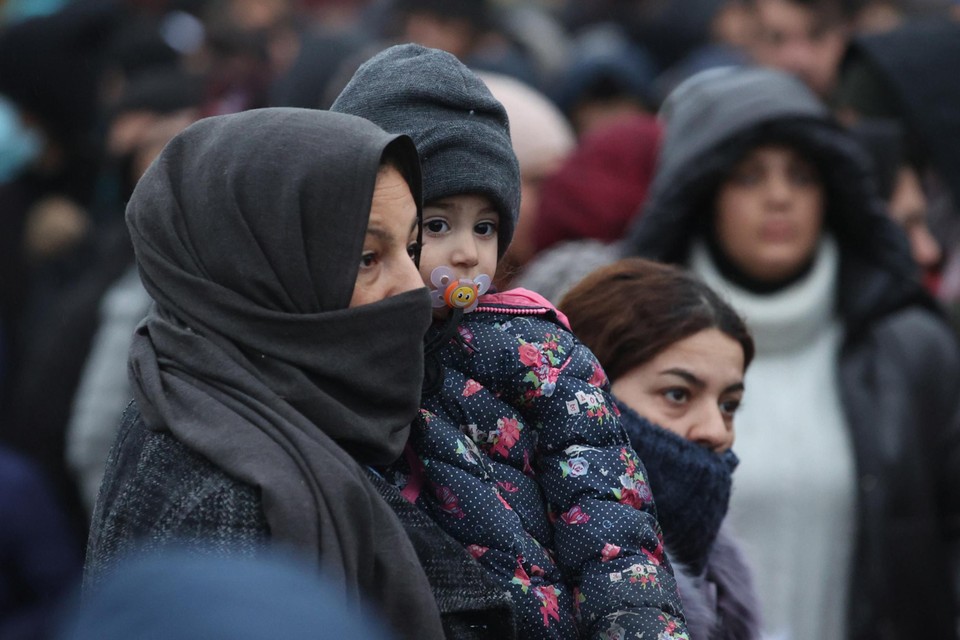Lithuanian authorities have detained thousands of migrants and refugees in militarised centres, where they are subjected to inhumane conditions and torture, according to a report Amnesty International published on Tuesday.
Amnesty International visited the Kybartai and Medininkai detention centres in Lithuania and interviewed 31 people. The conversations exposed inhumane conditions, torture, abuse and racism.
Refugees and migrants are denied access to fair asylum procedures and face other serious human rights violations in the hope that they will ‘voluntarily’ return to the countries whence they fled, the Amnesty report reads.
The interviewees came from countries including Cameroon, the Democratic Republic of Congo, Iraq, Nigeria, and Syria.
Inhumane conditions
One of the detention centres – the Kybartai centre – functioned as a prison until September 2021, when authorities started using it to detain refugees and migrants. It has barred windows, security doors, and a high perimeter wall.
Men who were detained in Kybartai are only allowed hot showers twice a week and had their movements restricted even within the facility. “Everywhere I look there is barbed wire, why? I am not a criminal; I am a refugee,” a Syrian man told Amnesty International.
Many interviewees reported being beaten, insulted and subjected to racially-motivated intimidation and harassment by guards, where there is insufficient access to sanitary facilities and healthcare.
“In Iraq, we hear about human rights and women’s rights in Europe. But there are no rights," said a Yazidi woman who was detained in the Medininkai detention centre, near the border with Belarus.
Detainees testified that authorities beat them with batons and used pepper spray and taser guns when they demonstrated. An anti-riot squad handcuffed and dragged them from their “rooms” and sexually humiliated a group of women who were forced outside into the cold, half-naked with their hands tied.
Black detainees have been subjected to profoundly offensive racist slurs. “Everything is racist here, all the guards here are racist. When you are sick and ask for an ambulance, they say they’ll call it when you faint,” a young woman from Sub-Saharan Africa said. “Why does no one like black people?”
‘Legalising the illegal'
In July 2021, Lithuania adopted new legislation prescribing the automatic detention of people who illegally cross into Lithuanian territory, which was described by authorities as “temporary accommodation”.
This has seen thousands of people detained for prolonged periods without any judicial oversight. Others have been violently pushed back across the border to Belarus. The actions are in breach of international and EU law.
Related News
- Nicole de Moor takes oath as new State Secretary for Asylum and Migration
- Case dismissed for Migration Minister's violation of asylum seekers' rights
- Explosive number of vacancies: Is importing foreign labour really the answer?
The European Commission has not yet triggered infringement proceedings against Lithuania and officers from the European Border and Coast Guard (Frontex) continue to assist Lithuanian border guards.
“A year after Lithuania tried to legalise the illegal, the European Commission still has not taken any action to bring Lithuania’s legislation into line with EU law,” said Nils Muižnieks, Europe Regional Director of Amnesty International. “As long as the European Commission stands idle, it sends a message to Member States that EU laws can be violated with impunity.”
Ukrainian refugees welcome
This treatment is in stark contrast to the welcome that refugees from Ukraine receive in the EU. Belgium, for instance, grants refugees from Ukraine a year-long residence permit that allows them to access the labour market.
“While Lithuania has rightly extended a warm welcome to tens of thousands of people fleeing Ukraine, the experience of the detainees we spoke with could not be more different,” said Muižnieks. “This raises serious concerns about institutional racism embedded within Lithuania’s migration system.”
The EU has created a “two-tier system” in recent months, Amnesty said. While Ukrainian nationals are protected, people fleeing other countries are detained and face racism and discrimination.

